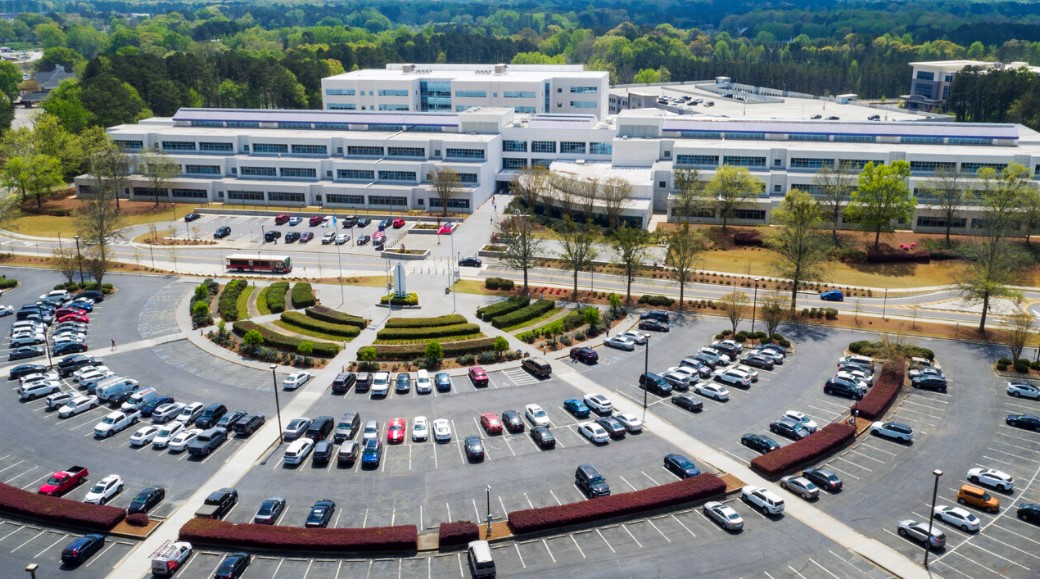Gwinnett County Superior Court handles a variety of civil and criminal cases. This includes resolving legal disputes between individuals or entities and overseeing probate cases.
The court also handles all felony cases prosecuted by the district attorney, as well as equity, declaratory judgments, mandamus, quo warranto, and prohibition. It can also review decisions of lower courts through certiorari review.
Background
Gwinnett County Superior Court serves as a cornerstone of justice in the community. Through dedicated judges, efficient procedures, and community engagement, the court ensures that the rule of law is upheld and access to justice is available to all.
A new Superior Court of Gwinnett County building will open by the end of 2019. The current courthouse was built in [year].
Initially, a log cabin was used for court proceedings. As the county grew, so did the demands for a larger structure. In 1871, the first log courthouse burned to the ground and was replaced with a Romanesque-style building. Despite the fire, many early records survived thanks to a citizen who entered the burning building and grabbed as much of the information as possible. The current courthouse has 27 courtrooms and a central entrance hall that unifies the entire facility. It also houses treatment courts, a business court partnership, and various other services. The court also provides pro bono services to those who cannot afford legal representation.
Jurisdiction
The Gwinnett County Superior Court is responsible for resolving a wide range of legal matters. It consists of multiple divisions that specialize in specific areas of law. The judges of these divisions are selected through a rigorous process that takes into account their expertise and dedication to upholding the rule of law.
The Superior Court of Gwinnett County handles civil and criminal cases, including family, probate, and juvenile matters. Its judges are highly trained and strive to deliver justice while respecting the privacy of those involved in cases.
The Superior Court of Gwinnett County is a key component of the local judicial system, and it works to improve access to justice by leveraging technology and embracing innovative approaches to dispute resolution. It also aims to foster a culture of excellence by encouraging collaboration among staff members and attorneys. This enables the court to meet the needs of its diverse community. The best Gwinnett County criminal defense lawyers must keep up with changes in Georgia law, particularly in relation to domestic violence and sex crimes like sodomy or prostitution.
Court procedures
Unless otherwise specified by court rule, motions in civil actions are decided without oral argument unless the parties request an oral hearing. Generally, such requests should be made in writing and submitted with the motion itself or no later than the time for response. See Gwinnett County Superior/State Court SmartRules for procedural guidance.
All pleadings must include the citation of supporting authorities in accordance with the Official Code of Georgia Annotated (O.C.G.A.). Motions for summary judgment must also include a statement of each theory the movant contends is in issue.
For cases that require service within the state, an entry of service form (3 part NCR paper) must be filled out and signed by the party being served. The block titled “Name and Address of Party to be Served” must be completed correctly, including the daytime phone number. If this information is incorrect, the sheriff must charge an additional fee for attempting service.
Community engagement
Community engagement is a process that involves evaluating how a plan or project is progressing and then incorporating the feedback into future projects. This is a key element to success. It also helps to build trust in the community that their input matters and influences decisions. However, it is important to keep in mind that not every idea is viable or feasible given the available resources.
Superior Court of Gwinnett County offers various community engagement activities, including access to court records and a searchable database. These tools are essential for those seeking legal assistance or filing a case. The Court also provides information regarding upcoming events and hearings through its calendar. In addition, the office of the Clerk offers pro bono services and legal aid clinics. The office also works to provide reasonable accommodations for individuals with disabilities, in accordance with the Americans with Disabilities Act. This is an effort to ensure that all individuals have access to a fair and equitable justice system.

